N/A
SBS
World Series Champion Astros Prove That Even Villains Can Have a Dynasty
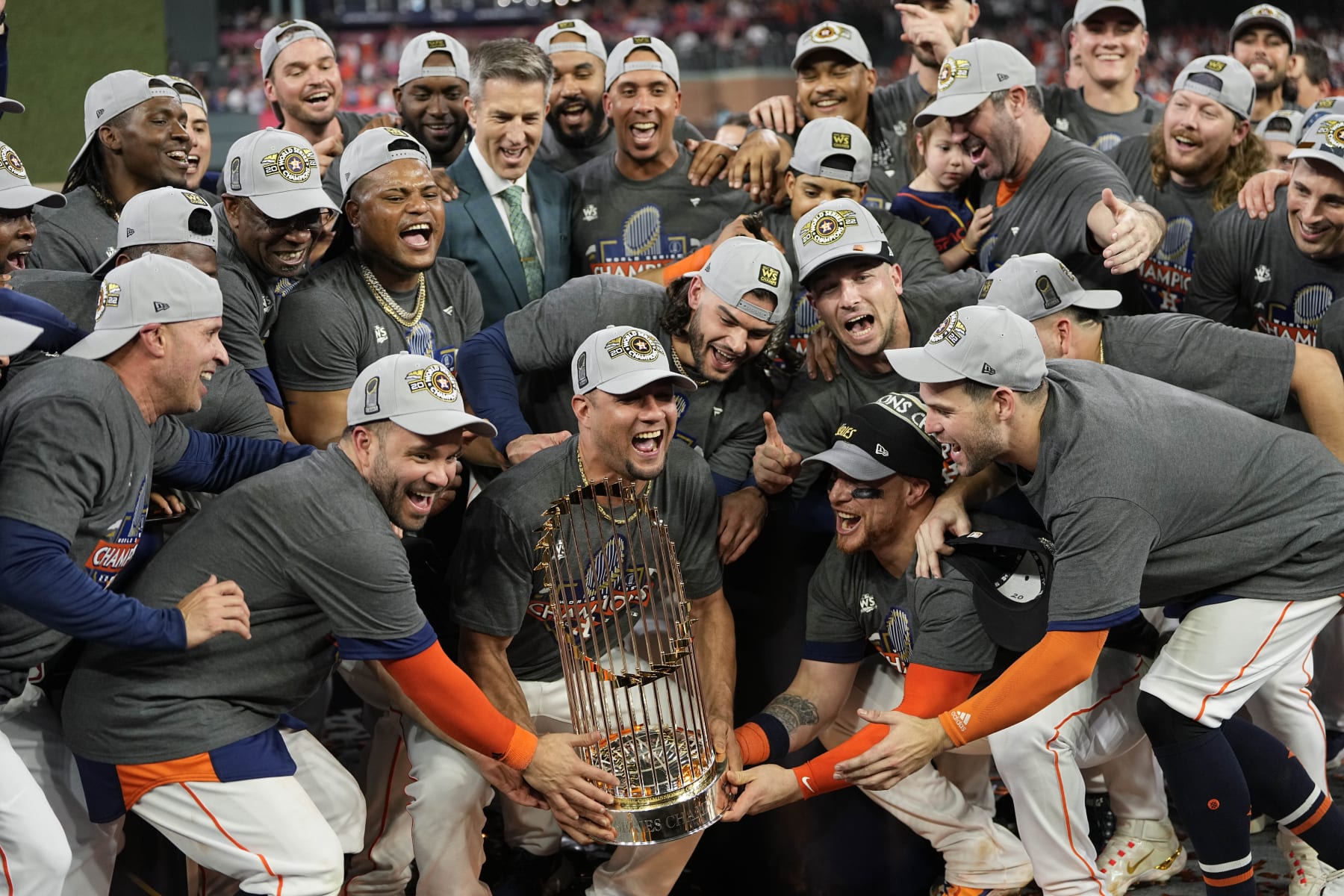
The Houston Astros are World Series champions. For real this time. No ifs, ands or buts about it. And no asterisks, real or imagined.
So, let's call them what they deserve to be called: a dynasty.
Judging from all the boos and jeers that the Astros have heard away from Minute Maid Park over the last few seasons, this is bound to register as an Unpopular Opinion. And, to be fair, said boos and jeers were well-founded. Nobody likes a cheater, and that's what the Astros were when they won their first World Series in 2017.
But this time around? This time around they were simply the best team in Major League Baseball.
This seemed true enough as the Astros tallied 106 wins in the regular season, and then increasingly so as they won each of their first seven in the playoffs. The Philadelphia Phillies positioned themselves to upset the narrative by winning two of the first three games of the World Series, but three straight victories by Houston put the kibosh on that.
The Astros outscored the Phillies 12-3 in Games 4, 5 and 6. In other words, the victors got as many runs on Yordan Álvarez's epic go-ahead home run in Saturday's decisive game as the losers scored in the last three games combined.
That plus Christian Vázquez's run-scoring single later in the sixth inning pretty much put the game on ice. The last nine outs that Houston had to get felt like so many formalities, up to and including the one that nestled in Kyle Tucker's glove for the third out of the ninth inning.
Thus did the Astros secure the World Series ring that eluded Dusty Baker in his first 24 years as a manager, and at least open the door for a conversation about their dynasty credentials.
What's In a Dynasty?
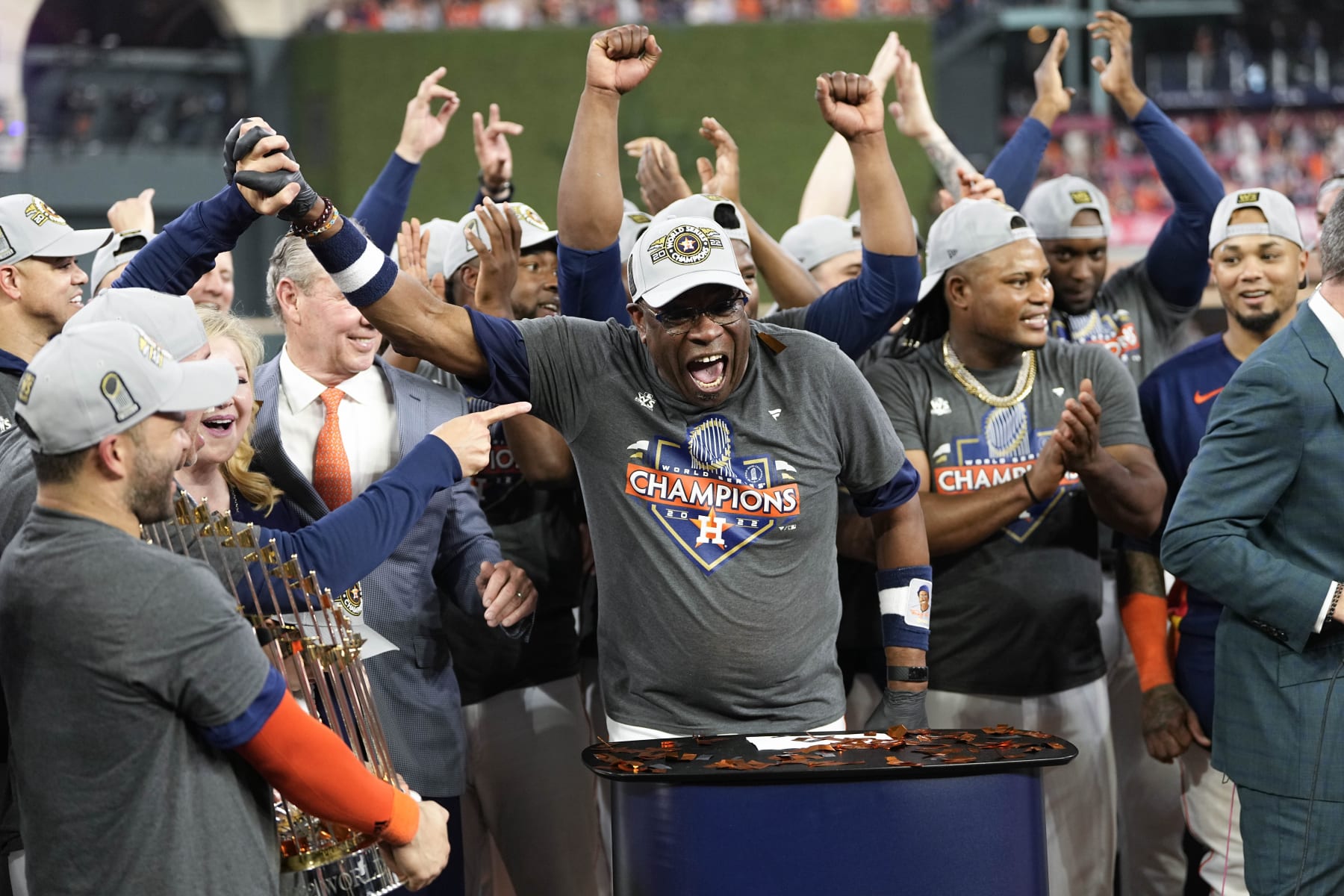
There's at least one obvious complication in attempting to slap the "dynasty" label on the Astros, and it's that the dictionary definition of the word doesn't exactly apply in this context.
Heck, even the Astros weren't sure of their dynasty status as of a couple of days ago.
When Sam Blum and Brittany Ghiroli of The Athletic asked around on the eve of the World Series, they got yesses from Justin Verlander, Yuli Gurriel and Martín Maldonado but a no from Jose Altuve and what amounted to "not sures" from Lance McCullers Jr. and Alex Bregman, though both of them added the same caveat.
As summarized by Bregman: "I think we’ve got to win this series."
Well, now they've done that. And it does feel like a sort of exclamation mark on a list of organizational accomplishments that also include:
- An American League-high 541 wins since 2017
- An MLB-high 53 playoff wins since 2017
- Six straight trips to the American League Championship Series
- World Series appearances in 2017, 2019, 2021 and 2022
That's a whole lot of winning over a sustained stretch of time. And if there was to be an officially recognized definition of "dynasty" in a sports context, that's our submission.
Of course, there is the elephant in the room. Or rather, the banging scheme in the dugout.
Yes, it happened. Specifically, in 2017 and into 2018 per MLB Commissioner Rob Manfred's findings on the matter. The scheme might not have actually helped the Astros all that much, but suggesting as much is sort of beside the point. That they even had the gall do to it was crime enough.
"We obviously cheated baseball and cheated fans," was how ex-slugger Evan Gattis put it in 2020. "Fans felt duped. I feel bad for fans."
And yet, much has changed since then.
This goes for the environment around the Astros, as the threat of teams copy-catting their method of using video to steal and decode signs in real time has since been diminished through new protocols and the introduction of the PitchCom system.
It also goes for the Astros themselves. Banging scheme ringleaders Alex Cora and Carlos Beltran were already gone by the time the scandal burst into the open in 2020, an event which also cost general manager Jeff Luhnow and manager A.J. Hinch their jobs.
There's even shockingly little connective tissue between the 2017 team and the 2022 team roster-wise. Altuve, Bregman and Gurriel are the only surviving members of the former's ill-begotten historic offense, with only McCullers and Verlander remaining on the pitching side.
To hold the misdeeds of the 2017 Astros against the 2022 Astros is therefore beyond holding the sins of the father against the son. It's more like demanding a son pay for the sins of his great-grandfather.
Instead of holding that grudge, how about acknowledging the non-nefarious ways the Astros built their dynasty?
The Astros Are a Machine
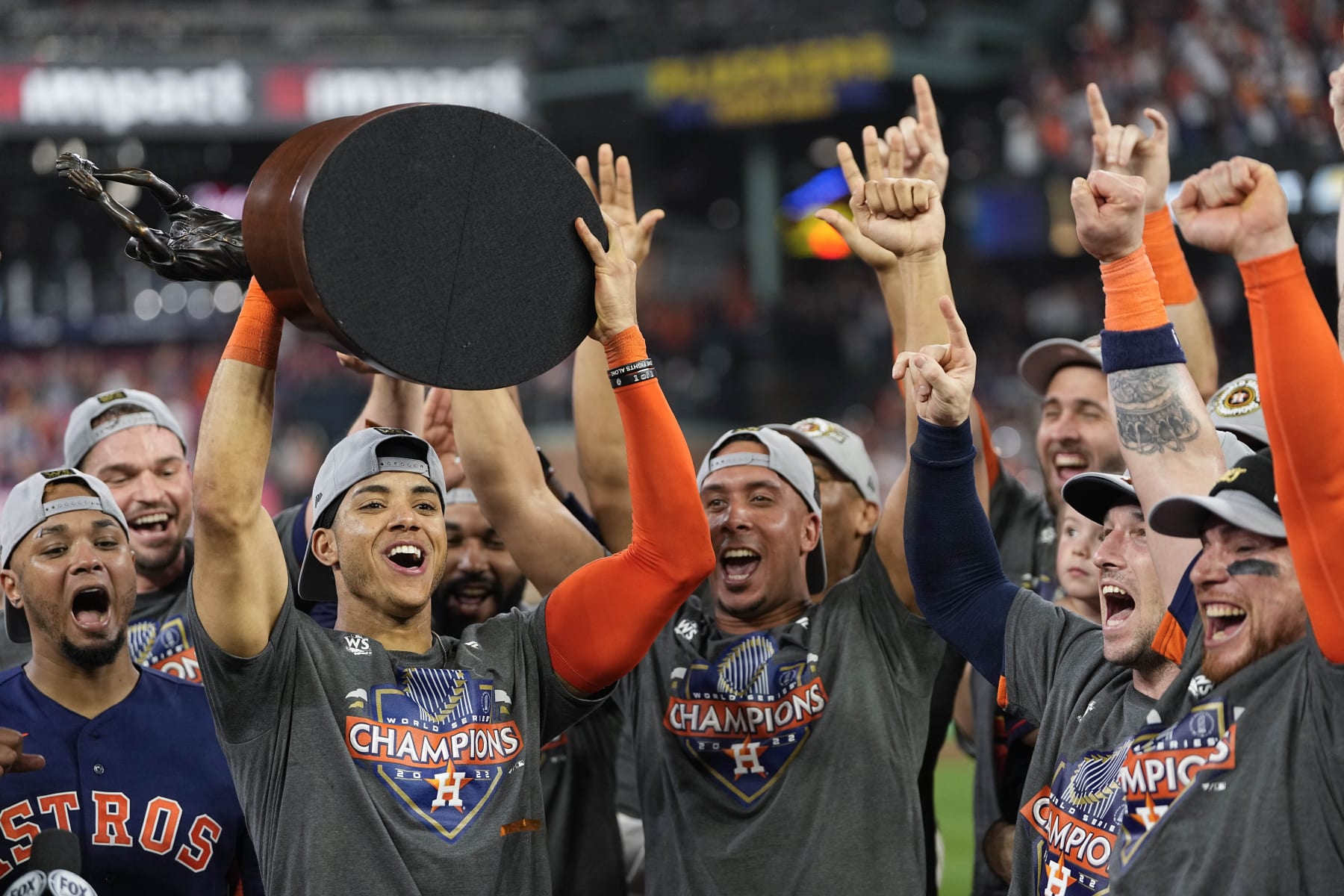
It's never easy to summarize any team's organizational philosophy, but the Astros' seems to be "look wherever and do whatever to find and develop good players."
Take Álvarez, for example.
The Astros acquired him from the Los Angeles Dodgers in exchange for middle relliever Josh Fields in Aug. 2016. Baseball America tabbed his bat control as his calling card, noting that his power only showed up in workouts.
Cut to now, and Alvarez is a 6'5", 225-pounder with 98 home runs in 368 career regular-season games, plus another six in 47 playoff games. Each of the three he hit in this postseason were all go-ahead shots in the sixth inning or later, which MLB.com's Sarah Langs noted as a first for MLB history.
For another example, take Jeremy Peña.
The Astros drafted him out of the University of Maine, a place that, with all respect to Bill Swift, is not known as a prospect factory. Next thing anyone knows, Peña is Houston's heir to former No. 1 pick and AL Rookie of the Year Carlos Correa at shortstop. And now, he's a Gold Glover and the first AL player to ever claim MVP honors for both the LCS and World Series.
But if anything has made the Astros the envy of MLB in recent years, it's surely the organization's ability to take seemingly any random pitcher and turn him into a military-grade weapon. And for a very simple yet nonetheless very good reason.
As Mike Fast, formerly Houston's research and development director, once put it: "The Astros have not, for a while now, had any hesitation about just, ‘Throw your best pitches.’”
To this, there's perhaps never been a more glowing testament than a moundstaff that featured some of MLB's best fastballs and breaking balls and, oh yeah, was generally just very, very good in 2022.
Though Verlander was already well decorated by the time he arrived in Houston, it was the Astros who fully unlocked his slider and, with it, arguably the best years of his Cooperstown career.
Albeit on a longer timeline, they also fully unlocked Framber Valdez as a stifler of hard contact and Cristian Javier and a misser of bats. Their six playoff starts yielded just four earned runs over 36.1 innings, with Javier working the tip of the spear for Houston's combined no-hitter in Game 4 of the World Series.
Ryan Pressly, meanwhile, is but one of many talented hurlers who can take credit for the MLB-best 2.80 ERA that the bullpen posted in the regular season and, well, all of the other-worldly numbers it put up in the postseason:
The awkward part is who, specifically, should get the credit for the Astros approach and all its benefits. James Click is running the front office now as the team's GM, but every single one of the players mentioned by name in this piece was originally acquired by Luhnow, who's now out of baseball and into soccer.
And yet, this really only matters if you're going to insist on personnel consistency as a stipulation for a proper dynasty. And if we must, well, dare we ask that people give it time?
It's not as if a breaking of the band is upon the Astros. They could sustain some losses this winter, including Baker from the manager's chair, Verlander from the rotation, Gurriel from first base and Rafael Montero from the bullpen. Everyone else, though, is in for 2023. And beyond, in many cases.
Whether the Astros will ever be able to outlast the boos and jeers is one question. Whether they'll keep contending for championships, however, is not a question at all.
Stats courtesy of Baseball Reference, FanGraphs and Baseball Savant.
Georgia's Beatdown of Tennessee Puts to Rest Which Team Should Be No. 1 in the CFP
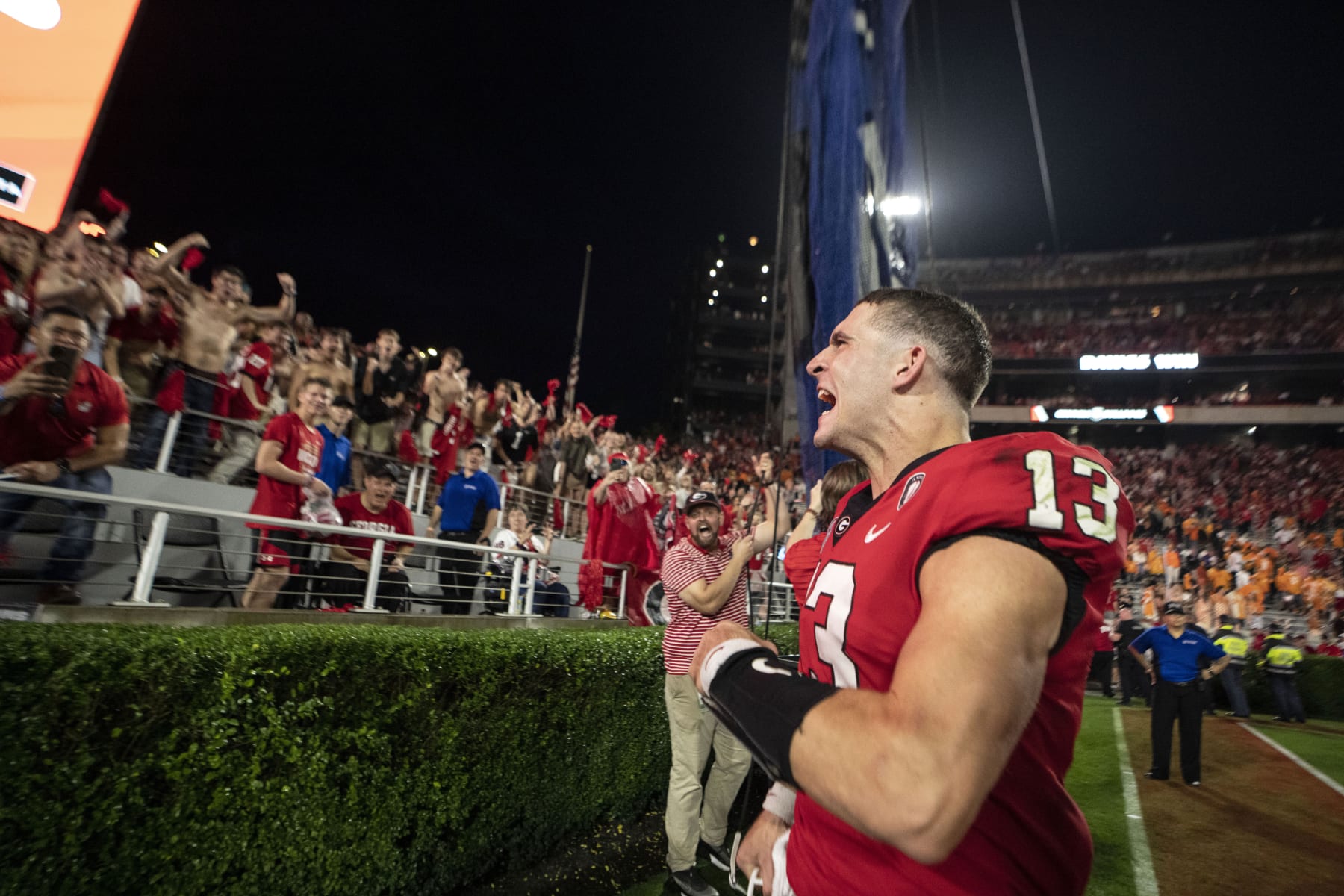
We begin with the punter. Yes, the punter.
To understand Georgia’s thorough domination of Tennessee on Saturday—a 27-13 triumph over the Vols that never felt that close—we begin in an unlikely place.
Sure, quarterback Stetson Bennett cemented himself as a legitimate Heisman candidate after accounting for three more touchdowns. And, yes, defensive lineman Jalen Carter, who has battled injuries this season, showcased glimpses as to why many NFL scouts feel he’s in the running for the No. 1 overall pick in next spring’s draft.
But the depth and talent run deep on this roster, all the way to the punter. That punter, Aussie Brett Thorson, unleashed a 75-yard punt that ultimately ducked out of bounds by its lonesome, on the opposing one-yard line.
It was a majestic boot—one of the greatest in recent memory. It should have resulted in a safety a few plays later, although it ultimately didn’t, thanks largely to some peculiar officiating surrounding a Tennessee fumble.
Still, Georgia used that field position to score a quick touchdown a few minutes later. The game never felt competitive from that point.
From the quarterback to the punter, the full arsenal of Georgia’s potential was on display in the biggest college football game of the season to date.
All year long, we’ve openly wondered what team deserves the No. 1 ranking: Alabama, Ohio State, Tennessee and Georgia all have made legitimate pushes throughout the year.
After Saturday, however, that discussion ends. The answer is Georgia, and there’s not much to it. Well, at least for now.
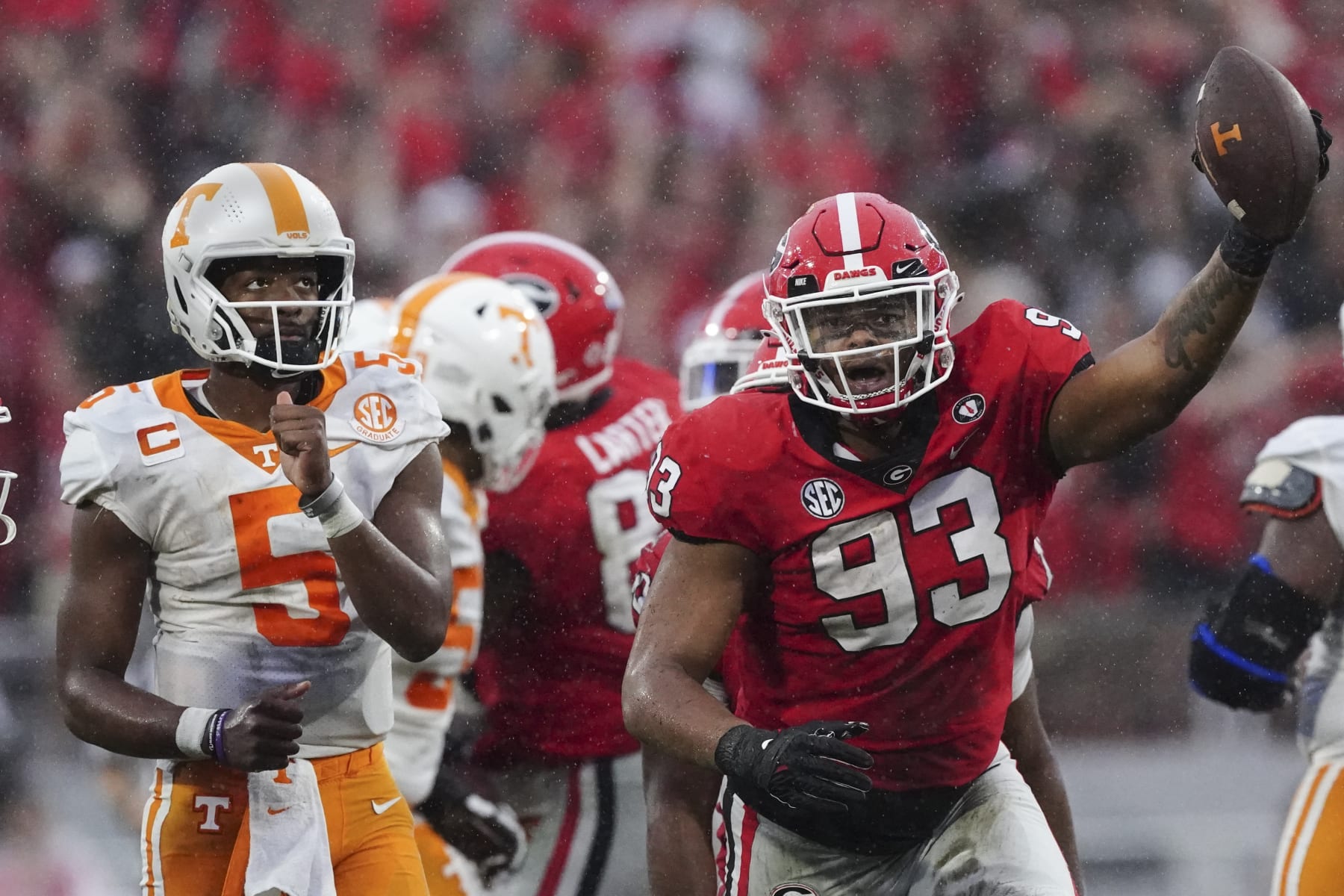
That sentiment, of course, hasn’t always existed this season. After winning the national championship in January, expectations for the program were enormous despite the exodus of impact players.
A blowout victory over Oregon in the opening weekend only fanned the flames. But along the way, Georgia injected some doubt into the season. The Bulldogs allowed Kent State to score 22 points, only to barely beat Missouri on the road the following week.
From that point on, the questions surrounding Georgia have persisted despite a solid string of wins (albeit against inferior opponents). On Saturday, those questions dissipated quickly.
Coming into this week, Tennessee was the hottest team in college football and the No. 1 seed in the first College Football Playoff rankings. Entering Saturday, the Vols were averaging more than 49 points per game.
Georgia held Tennessee, the nation’s No. 1 scoring offense, to one touchdown, and it came with a little more than four minutes remaining in the game. That about sums it up.
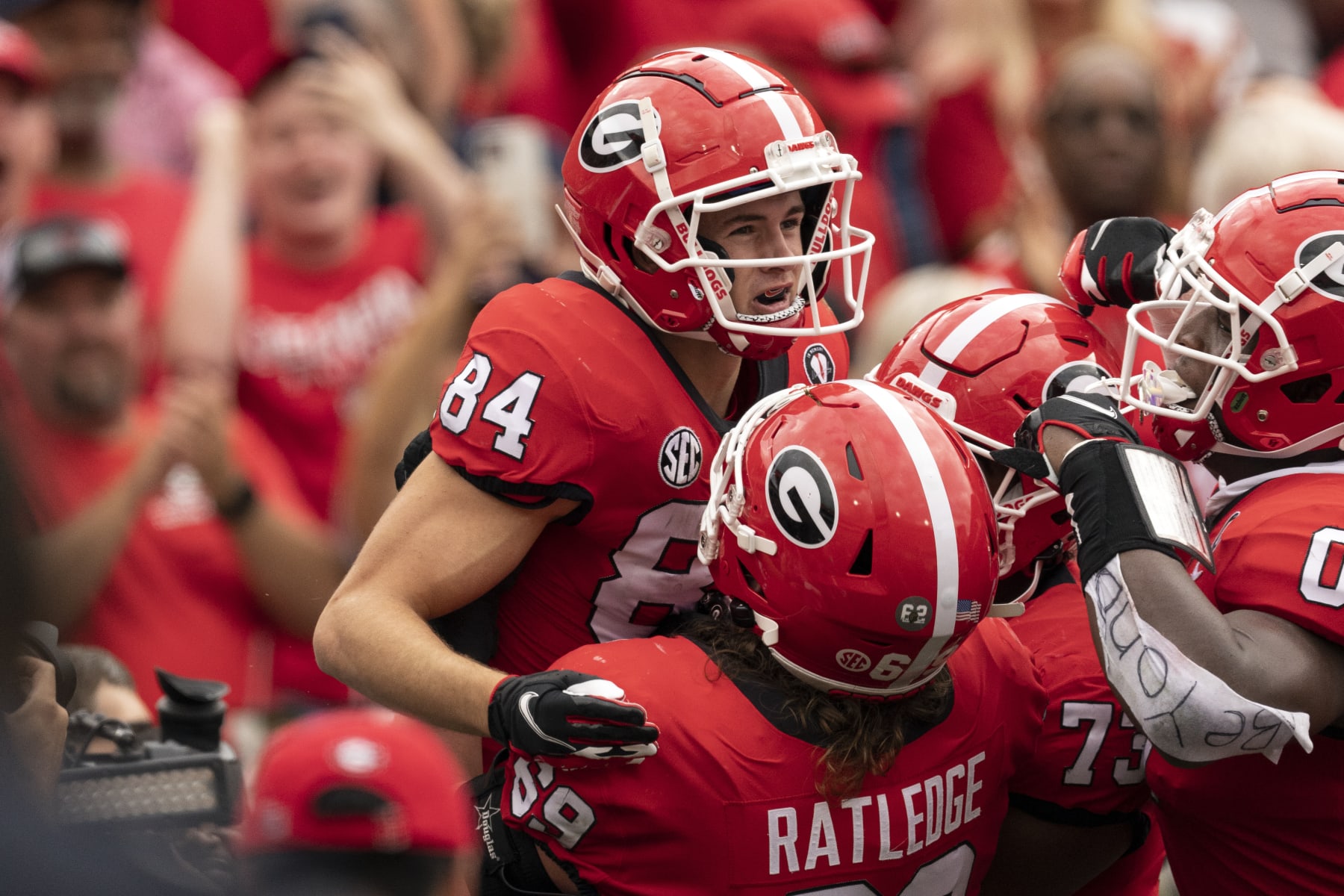
The scoreboard didn’t necessarily read like a blowout, although the actual football game never truly felt all that close. Georgia held a 24-6 lead at half, and then the Bulldogs essentially ran out the clock as the rain finally came from that point forward.
The ramifications that will emerge from this game will be sizable in the SEC and beyond. On Tuesday night, Georgia will be a runaway choice as the selection committee’s new No. 1 choice for the College Football Playoff.
No drama. No debate.
Moving forward, it will likely take a loss to remove the Bulldogs from that position. Tennessee will move down, although probably not too far. And earlier on Saturday, Ohio State, another team in consideration for this No. 1 spot, struggled in a win against one-win Northwestern.
The Bulldogs’ remaining schedule is not without intrigue. Well, perhaps that depends on what you view as “intrigue.”
Georgia will play road games at Mississippi State and Kentucky before heading home to play Georgia Tech. From there, Kirby Smart’s group is likely SEC Championship Game bound. If the Bulldogs get to the title game unbeaten, they are likely a lock for the playoff regardless of the outcome.
Sound familiar? It should.
The very scenario played out last season when Georgia lost to Alabama in the SEC Championship Game. From there, the Bulldogs cruised through to the playoffs and to the national title.
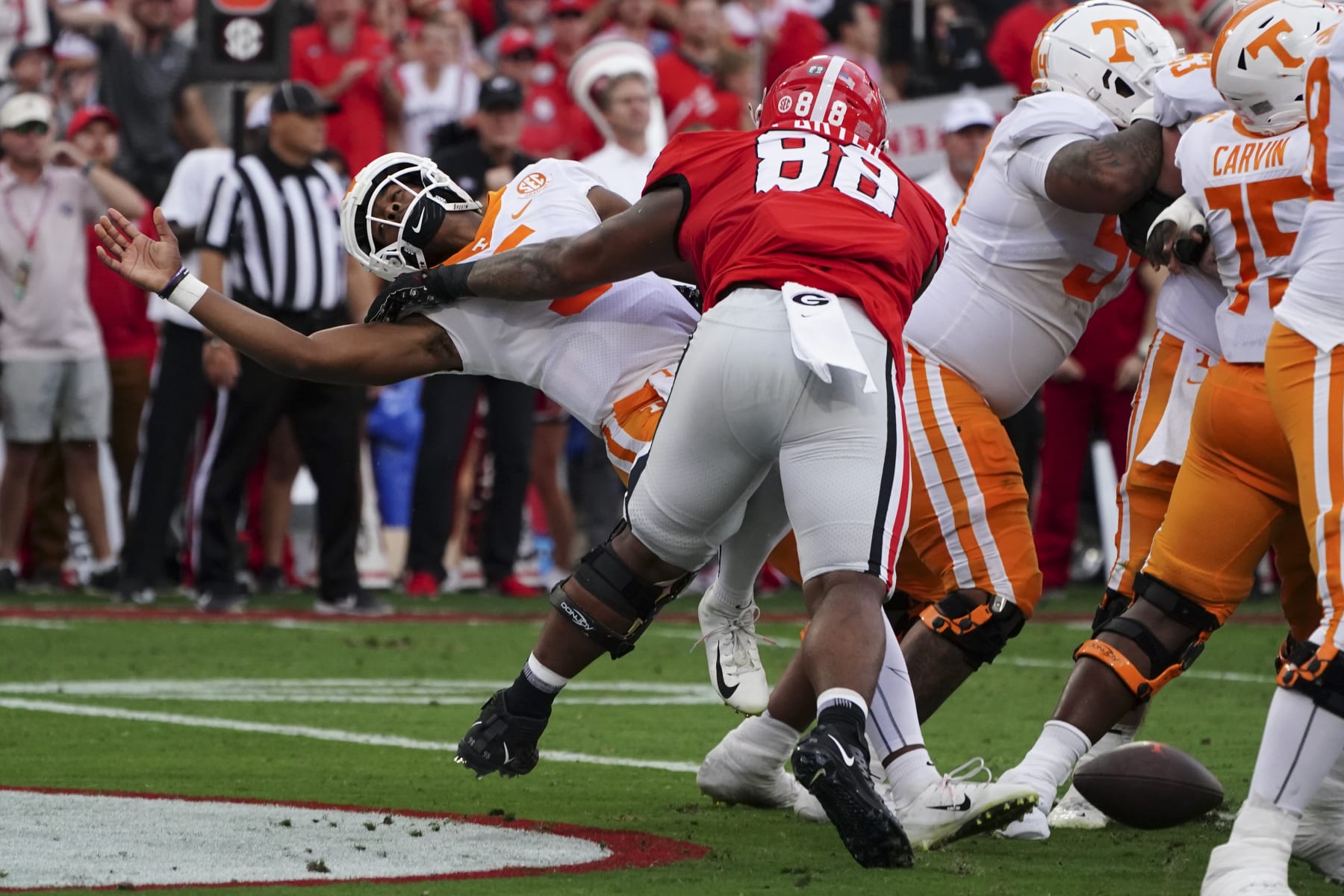
This team, the best football team in America, does not possess the same talent that last year’s group did. That is not a controversial opinion; given all the meaningful players Georgia lost, it’s just the reality.
The fact that Georgia has been able to mold a legitimate title contender this quickly is a testament to the years of brilliant recruiting and development that Smart has constructed in Athens.
Still, back-to-back national titles are not a given for Georgia. Saturday’s result against Tennessee, as significant as it was, guarantees nothing moving forward.
It reminded, however, just how talented this roster is from the very top to the very bottom. It also put the Bulldogs in an unbelievable position moving forward as college football’s home stretch begins.
More immediately, it ended the debate surrounding the nation’s No. 1 team.
That answer is clear. The answer is Georgia.
